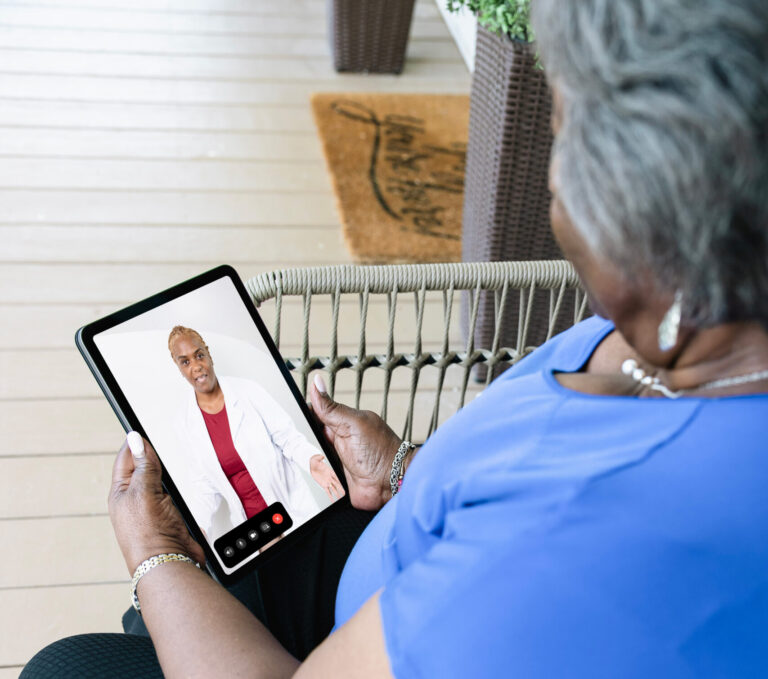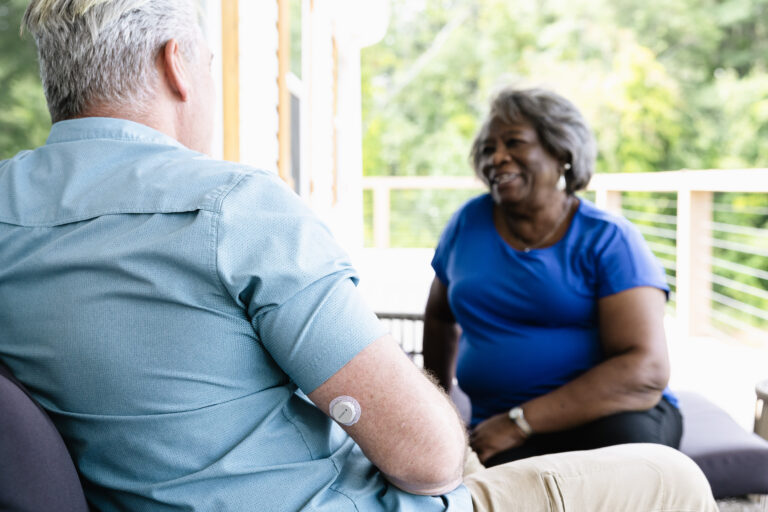This content has been reviewed for accuracy by Mike Cantor, Chief Medical Advisor at Aeroflow Health.
Dive into our blog inspired by our webinar, “Food Is Medicine: Empowering Health Plans To Integrate Nutrition for Member Wellness,” to learn about innovative ways to improve member health and well-being. For more comprehensive insights, don’t miss the chance to watch the webinar playback.
Table of Contents
What is “Food Is Medicine (FiM)”? What is a “food prescription,” and how is this different from a FiM program? Is FiM a benefit design?
Holly: To be honest, if you ask this question to other people in the field, we’re all going to have slightly different answers, and the reason is that there’s no standardized definition. What we’re seeing in the field right now, especially with the White House commitment, is that the FiM discussion is really turning into a movement. By acknowledging and understanding the value of nutrition as part of healthcare and as part of treatment and prevention, we must acknowledge that we won’t see health outcomes the way that we would like to see them if we don’t understand and acknowledge nutrition and the role of food. When thinking about the role of FiM, I use the terminology “Food is Medicine prescriptions,” and what I am doing by saying this is acknowledging and noticing that we need to put more focus on treatment plans for individuals who might be struggling with food insecurities and/or chronic conditions. Food prescriptions should be part of the continuum of services that healthcare providers engage patients with. This could take on various forms. For example, produce prescriptions, medically tailored groceries or medically tailored meals can all engage patients with optimal nutrition options when living with a chronic disease or medical condition. When we think about benefit design, in my worldview, it’s not just about a program; it’s about how we meet the patients where they are. Every patient will have a different scenario that requires a different treatment plan. For example, if a patient was recently discharged from the hospital, it may be that they need medically tailored meals for a time, and then once fully recovered, they can come off the system. Food should be a part of the discussion for patient treatment plans.
What has the traditional approach to nutrition and FiM been for health plans, and how is that evolving?
Sophie: Traditionally, there hasn’t really been an approach, and now that FiM is becoming more relevant and a more frequented conversation, I think in the literal sense, we see food and nutrition as critical interventions for disease prevention and for treatment. As Holly mentioned earlier, the FiM movement is all about supporting members who need extra support to meet their nutritional needs so they can manage their disease states effectively and have the inputs they need to be successful and food secure. Referring to the FiM program and the defining of what it means for health plans, I see it as a recognition of the broader Social Determinants of Health (SDoH) that go into patients developing disease and addressing these root causes rather than waiting for patients to enter the healthcare system or continue to inundate the issue. Figuring out how to prevent patients from utilizing large portions of the healthcare system and providing them with what they need in order to live a healthy, fulfilled life should be the goal.
Why is Aeroflow Health interested in the Food Is Medicine movement?
Ryan: Our interest in nutrition services and viewing food as medicine began in our Mom and Baby division. We were supplying breastfeeding products and recognized a need to also include lactation counseling as a part of our holistic approach to breastfeeding and providing moms with the resources, products, and education they deserve. In this continued conversation among our team, nutrition services became a topic of consideration, and we started looking at the potential of adding Nutrition Therapy to the Mom and Baby division. These conversations really opened our eyes internally to look at what the other product categories, and disease states are that we focus on, supplying patients with their durable medical equipment products that have a correlation to food. This is how Aeroflow Diabetes became an additional business line for us and, most recently, the addition of Sophie as our Registered Dietitian who provides Medical Nutrition Therapy to qualifying patients.
The “Food Is Medicine” movement is gaining traction. What are some FiM successes? What are the opportunities?
Holly: Before I started my time with The Milken Institute, I was the Chief of Food Policy Planning for the City of Baltimore, and I led the nutrition security response for COVID-19. One of the key lessons that we’re seeing right now in the FiM movement is understanding how important food insecurity plays in impacting health conditions and acknowledging that access alone is not enough. Jumping forward to where we are now, the White House Conference on Hunger, Nutrition and Health, in my opinion, has been one of the greatest successes in mobilizing stakeholders and unifying everyone to point in the same direction. When you look at the successes of the last several years of FiM, I would say we’re finally seeing pockets of pilot programs coming to scale. We are seeing evidence of growth building way beyond 100 to 200 population groups, even in the 2000s, in many states. Also, we’ve seen movement when we look at Medicaid 1115 waivers. Only a couple of years ago, we only saw a handful of states and now we’re seeing 7-12 depending on how you count in their status, whether they’re approved right now or pending, and so I think that we’re pointing in the right direction. As it relates to some of the challenges we are seeing, I believe we need to be ready with implementation strategies when policies and reimbursements scale. We need to look into data, technology, interoperability and where there might be financing gaps regarding reimbursement. A lot of what we’re doing at The Milken Institute is looking at what the future might hold and planning for the next steps if these policies pass.
How would you recommend health plans consider the allocation of financial responsibility for Food is Medicine when there are already federal programs like the Supplemental Nutrition Assistance Program (SNAP) in place?
Holly: When we talk about SNAP, we’re talking about providing supplemental amounts of food that lessen the probability of hunger. SNAP ensures that people do not have to skip meals, but it doesn’t necessarily meet a need when we’re talking about health outcomes and treating disease. Food is Medicine should never replace federal nutrition assistance programs; I see it more as an opportunity to stack benefits. For example, for those on SNAP, we know that by definition, supplemental food only means enough to not be hungry, but the amount of supplemental food provided may not be enough to treat someone in a diseased state.
How can technology, such as telehealth and mobile applications, be utilized to support and empower members in their “Food Is Medicine” journey?
Holly: We’re already seeing quite a bit of movement in this space. For example, we’ve seen some more FiM companies coming on the scene to help with interoperability. Grocery stores, pharmacies, and other third parties are beginning to understand the significance that they play in providing the data they receive back to health plans; however, I don’t believe all of the dots have been connected yet. One of the things that The Milken Institute is learning in our most recent findings related to the role of pharmacies is that pharmacies understand how to stay HIPAA compliant, but oftentimes, those at the front of the store aren’t able to report back to health plans. In addition, there is the issue of ensuring that pharmacists have access to the information they need to provide a patient with the care outlined, and then going the step further would be making sure that the pharmacist is able to communicate to the Registered Dietitian all that they should know.
Ryan: Aeroflow realized that with our close proximity to patients, we could be an integrator of all the moving pieces and touchpoints that often the health plan or provider doesn’t have the opportunity to do. We’re able to synthesize data points within our own system with the patients that we’re servicing and then package up that data to give to health plans. To Holly’s earlier point, in our business, we’re not very connected with pharmacies, and truthfully, it could be beneficial for the Aeroflow clinical team to have the data from pharmacies as they assist and navigate patient circumstances. On the flip side, though, our teams have so much information that we could share back with providers, health plans, and the rest of a patient’s care team; it’s just a matter of navigating the process of making that a reality. For example, when Aeroflow Diabetes is working with a patient to optimize their CGM device and get them set up with our Registered Dietitian, we gather a lot of patient data that a health plan could use to be a closer care partner than they would be otherwise.
What is Aeroflow Health doing to provide nutrition support to members who are in-network?
Sophie: Aeroflow Health is now offering Aeroflow Nutrition Services, a medical nutrition therapy program for patients with chronic diseases like type 2 diabetes. We offer one-on-one and group sessions to empower patients to utilize food to improve their health. Patients meet with a Registered Dietitian and work on dietary changes that can help them lose weight, reduce their A1C, and lower their risk for heart disease. Aeroflow just released a blog that covers in detail what the program includes and how they are trying to be a part of the greater nutrition solution. If you are wanting to learn more, you can check out the blog here.
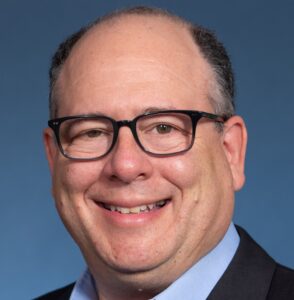
Michael Cantor, M.D.
Dr. Mike Cantor is a geriatrician and attorney who has extensive experience designing and implementing value-based care, quality improvement, and care management programs for healthcare providers and health plans. He works as a fractional (part-time) Chief Medical Advisor for Aeroflow Healthcare, Uber Health, and other technology-enabled health services companies, value-based care organizations and digital health companies. Previous roles include: CMO for Bright Health Plan, an innovative health
insurer; CMO for CareCentrix, a leading outsourced home health, durable medical equipment, and post- acute care benefits manager recently acquired by Walgreens; and CMO for the New England Quality Care Alliance (NEQCA), the physician network affiliated with Tufts Medical Center, where he implemented network-wide quality improvement and care management programs for 150,000 managed care lives. He trained in internal medicine at Beth Israel Hospital in Boston and did his geriatrics fellowship at Harvard Medical School. He has degrees in law and medicine from the University of Illinois.

Ryan Bullock
Ryan serves as Chief Strategy Officer at Aeroflow Health, a premier nationwide provider of durable medical equipment. In his current position, Ryan oversees strategic operations, corporate development and government relations. For over 14 years, Ryan has provided exceptional leadership, management and vision to Aeroflow, resulting in incredible growth and profitability for the company. Ryan holds a Bachelors of Science degree in Electronic Engineering from Western Carolina University and resides with his family in the beautiful mountains of Asheville, North Carolina.
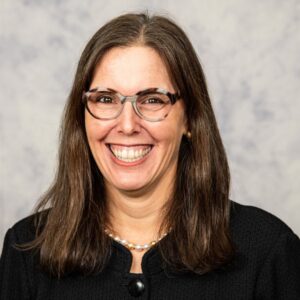
Holly Freishtat
Holly Freishtat is the senior director of Feeding Change at The Milken Institute. Ms. Freishtat is the Senior Director of Feeding Change with The Milken Institute. She is an experienced director, transformative leader, and strategist with a 20-year track record developing and implementing food system policies and programs. Holly served as Baltimore City’s first Food Policy Director and Chief of Food Policy & Planning, where she founded and directed the Baltimore Food Policy Initiative. Holly spent over a decade building an equitable and resilient food environment by creating policies and programs that directly impact health & economic disparities. As a result, Baltimore City has become internationally renowned for innovative food governance and leadership. Holly has received national and international recognition for her public speaking skills and food systems expertise. She has presented at 125 international and national speaking engagements and has been interviewed by CNN, NBC, Huffington Post, Politico, and the Associated Press. In addition, Holly has been awarded numerous accolades for her contributions to food systems, including the Mayor's Medallion for Meritorious Service Award, Maryland Daily Record’s Top 100 women, and the 2016 Milan Urban Food Policy Pact Award. Freishtat has served as a food systems strategist, agricultural marketing director, nutrition educator, and grower. She holds an M.S. in Agriculture, Food, and Environment from the Friedman School of Nutrition Science & Policy at Tufts University, a B.S. in Nutrition from the University of Vermont, and an executive certificate from Carey Business School.
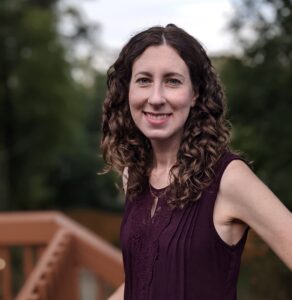
Sophie Lauver, MS, RD, LDN, NBC-HWC
Sophie Lauver is a Registered Dietitian and Board Certified Health and Wellness Coach passionate about helping people take control of their health and get excited about nutrition. Sophie has a Bachelor's degree in Communication from the University of Delaware and a Master’s degree in Dietetics from Eastern Michigan University. Sophie has worked in a wide variety of settings, including hospitals, long-term care, rehabilitation, and wellness technology, and most recently, served as the director of the nation's largest diabetes prevention program. Sophie lives in Baltimore, MD, with her husband, infant son, and their two dogs and two cats. When she’s not working with clients, she enjoys cooking, not doing dishes, trying new restaurants, and spending time being active outside (especially on warm and sunny days).



